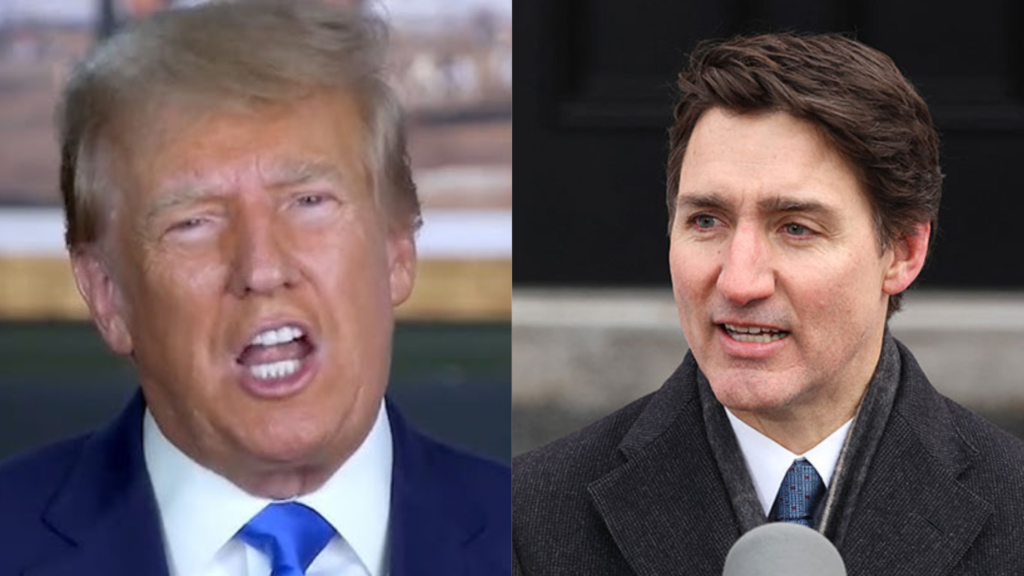
Prime Minister Justin Trudeau announced on Monday that the proposed tariffs between Canada and the United States would be delayed for 30 days as both nations work on strengthening border security.
This decision follows a conversation between Trudeau and U.S. President Donald Trump, during which they addressed trade tensions and border-related concerns, particularly the fight against fentanyl trafficking.
Following his call with President Trump, Trudeau posted a statement on X (formerly Twitter) detailing Canada’s new border security initiatives, which will be implemented as part of a $1.3 billion plan:
I just had a good call with President Trump. Canada is implementing our $1.3 billion border plan — reinforcing the border with new choppers, technology and personnel, enhanced coordination with our American partners, and increased resources to stop the flow of fentanyl. Nearly…
— Justin Trudeau (@JustinTrudeau) February 3, 2025
Allocating $200 million to support these measures, backed by a newly signed intelligence directive on organized crime and fentanyl trafficking.
“In light of these measures, proposed tariffs will be paused for at least 30 days while we continue working together with our American partners,” Trudeau wrote.
Prior to the announcement, Trump criticized Canada’s financial sector policies on Truth Social, writing:
“Canada doesn’t even allow U.S. banks to open or do business there. What’s that all about? Many such things, but it’s also a DRUG WAR, and hundreds of thousands of people have died in the U.S. from drugs pouring through the Borders of Mexico and Canada. Just spoke to Justin Trudeau. Will be speaking to him again at 3:00 PM.”
Trump’s comment about U.S. banks not operating in Canada was misleading, as major American financial institutions like JPMorgan Chase and Citibank do business in the country.
The tariff delay comes after the White House initially announced plans for new import tariffs:
- 25% tariffs on imports from Canada and Mexico.
- 10% tariffs on imports from China.
- 10% tariffs specifically on Canadian energy exports.
These tariffs were set to take effect on February 4 before the 30-day delay was agreed upon.
While Trump has emphasized drug trafficking and illegal immigration as key issues in trade negotiations, U.S. Customs and Border Protection (CBP) data provides a more nuanced perspective.
According to Forbes, in Fiscal Year 2024, CBP apprehended 23,721 people illegally crossing the U.S.-Canada border, representing just 1.5% of total U.S. Border Patrol apprehensions. By comparison, over 1.5 million apprehensions occurred at the U.S.-Mexico border during the same timeframe.
In a parallel development, Mexico has also agreed to deploy troops along its border with the United States, securing a similar 30-day tariff pause.
President Trump posted on Truth Social:
“I just spoke with President Claudia Sheinbaum of Mexico. It was a very friendly conversation wherein she agreed to immediately supply 10,000 Mexican Soldiers on the Border separating Mexico and the United States. These soldiers will be specifically designated to stop the flow of fentanyl, and illegal migrants into our Country.”
He further stated:
“We further agreed to immediately pause the anticipated tariffs for a one-month period during which we will have negotiations headed by Secretary of State Marco Rubio, Secretary of Treasury Scott Bessent, and Secretary of Commerce Howard Lutnick, and high-level Representatives of Mexico. I look forward to participating in those negotiations, with President Sheinbaum, as we attempt to achieve a ‘deal’ between our two Countries.”
Mexican President Claudia Sheinbaum also posted about the discussion on X, confirming that Trump agreed to pause tariffs for a month while Mexico strengthens border security.
Sheinbaum’s translated statement read:
“We had a good conversation with President Trump with great respect for our relationship and sovereignty.”
She confirmed that 10,000 Mexican troops would be deployed to reinforce the border, and that the U.S. tariffs would be paused for one month while negotiations continue.
Neither the White House nor the Prime Minister’s Office has released a formal readout of the Trudeau-Trump conversation, but officials from both countries are set to meet in the coming days to finalize the agreement’s details.
With the 30-day delay now in effect, it remains to be seen whether Canada’s and Mexico’s increased border security measures will meet U.S. expectations—or if the tariff threats will resurface once again.
This is a developing story—refresh for updates.

